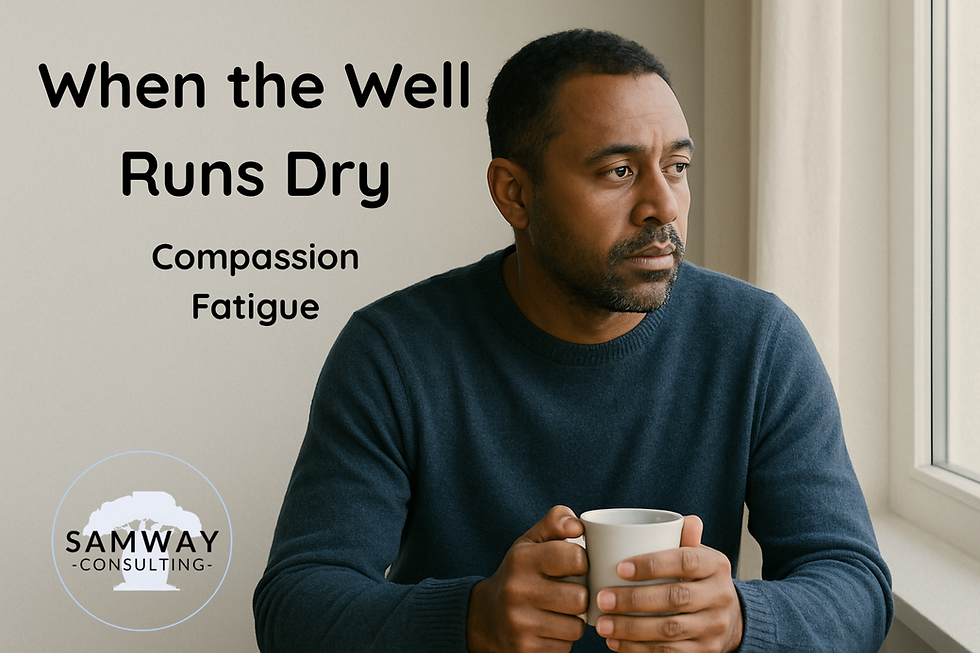How to Choose the Best Therapist For You
- Wayne George

- Mar 28, 2021
- 3 min read

We all need a listening ear from time to time. Sometimes that listening ear needs to be that of a professional counsellor/therapist.
There are many good counsellors/therapists out there - a quick search on any reputable directory like Psychologytoday.com will soon confirm this - many counsellors and psychotherapists who have your best interests at heart. When you find yourself in need of a counsellor - going through a rough patch or just need a listening ear as you navigate your way through some key decisions - the question that needs to be answered as you wade through the long list of therapeutic possibilities, is:
"How do I choose the best therapist for me?".
It goes without saying, the obvious boxes that your counsellor should tick include:
Counselling qualification from a recognised training institution;
Professional registration with a counselling association, like the Australian Counselling Association
However, there are other 'non-negotiables' that need to be factored into your decision to go with a particular therapist over another.
Here are three simple, yet profound, questions to ask when considering a counsellor:
1. Does this therapist ‘GET ME’?
This is an important question to ask because you are seeking to enter a therapeutic relationship with a professional person who has a level of empathy that enables him to connect with you and your story.
’Feeling with you’ and what you are going through, is a condition that is core to any therapeutic alliance. (Remember, you are looking for empathy (feeling with) more so than ‘sympathy’ (feeling for) ).
So, empathy is an important factor that needs to be taken into consideration.
2. Am I being treated with RESPECT and NON-JUDGMENTALISM?
This may seem like an obvious one, but should certainly not be overlooked. Irrespective of your background, your race, your job-type or any other distinctives that form part of your story, you deserve to be respected and not judged.
Any therapist worth his salt will endeavour to meet you where you are at in your journey and navigate said journey with you, respectfully and empathetically. If, for any reason your counsellor feels that his skillset is not compatible with your needs then he should be professional about this and refer you to other possible counsellors who may be better suited to your particular situation.
The bottom line is you have the right to be respected and not judged.
3. Is this counsellor GENUINE?
As human beings we all tend to wear masks at times and in different situations, disclosing more about our true self only in situations where mutual trust has been established. However, even though you may not know everything there is to know about your prospective therapist, the reality is genuineness can, in most cases, be sensed very early on in any relationship. You'll 'feel it' when your new therapist is being open and real with you. You'll know when what you are getting from your new therapist is a fabricated or truthful care, concern and counsel.
Of course, there are many more factors that could be considered - you may have a list of your own - however the elements of empathy, respect/non-judgmentalism and genuineness
are the non-negotiable conditions that underpin any therapeutic alliance/relationship and provide the best possible foundation for you and your therapist to build upon.
Where to start
Most counsellors offer a free initial consultation. By taking advantage of this opportunity, you'll be able (at least to some degree) to get a sense of the counsellor's empathy, respect and genuineness towards you, and decide from there if he is the best therapist for you.
All the best as you decide which therapist is best for you.
Team Samway






Comments